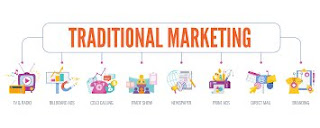Website Management Made Easy: Strategies for Smooth Operations
In today’s digital age, having a strong online presence is no longer a luxury — it’s a necessity. Whether you’re a seasoned entrepreneur or a budding freelancer, your website serves as your digital storefront, your informational hub, and your connection point with potential customers. But simply having a website isn’t enough. To truly thrive in the competitive online landscape, you need a three-pronged approach: website development, website management, and digital marketing.
Website Development: Building Your Digital
Foundation
Website development is the cornerstone of your online
presence. It’s the process of creating your website, from crafting the visual
design to writing the engaging content and ensuring smooth functionality.
Here’s a breakdown of what website development entails:
Planning and Design: This initial
stage involves defining your website’s goals, target audience, and overall
brand identity. Working with a web developer, you’ll establish the website’s
architecture, user interface (UI), and user experience (UX). A well-designed
website should be visually appealing, easy to navigate, and optimized for
mobile devices.
Development and Programming: Once the
plan is in place, the developer brings your website to life by coding the
backend functionality and integrating the desired features. This could include
e-commerce functionalities, contact forms, online booking systems, or custom
animations.
Content Creation: Compelling content
is the heart of your website. This includes crafting clear and informative
website copy, product descriptions, blog posts, and engaging visuals.
High-quality content not only informs your visitors but also helps with search
engine optimization (SEO).
Testing and Launch: Before going live, the website undergoes rigorous testing to ensure all functionalities work seamlessly across different devices and browsers. Once the testing is complete, your website is finally launched, ready to greet the world!
Website Management: Keeping Your Digital Home
Thriving
Just like a physical store needs regular maintenance,
your website requires ongoing management to ensure it remains functional,
secure, and up-to-date. Here’s what website management involves:
Content Updates: Your website should
be a living entity that evolves with your business. Regularly updating content
with fresh blog posts, product offerings, and news keeps visitors engaged and
demonstrates your commitment to growth.
Security Maintenance: Cybersecurity
threats are ever-present. Regularly updating website software and plugins helps
patch vulnerabilities and protects your website from malware and hacking
attempts.
Performance Optimization: A slow
website can lead to frustrated visitors and lost conversions. Website management includes monitoring
website performance and implementing strategies to improve loading speed and
overall user experience.
Analytics Tracking: Tracking website
analytics provides valuable insights into user behavior. By analyzing website
traffic, you can understand which pages are most popular, where visitors come
from, and how they interact with your website. This data helps you refine your
website content and marketing strategy.
Digital Marketing: Attracting Visitors and
Converting Leads
Once your well-developed and effectively managed website
is in place, it’s time to attract visitors and turn them into loyal customers.
This is where digital marketing comes into play.
Digital marketing encompasses various strategies to
promote your website and brand across the digital landscape. Here are some key
digital marketing tactics:
Search Engine Optimization (SEO): SEO
involves optimizing your website content and technical aspects to rank higher
in search engine results pages (SERPs) for relevant keywords. This organic
visibility helps potential customers discover your website when they search for
products or services you offer.
Social Media Marketing (SMM):
Leveraging social media platforms like Facebook, Instagram, or Twitter allows
you to connect with your target audience, share engaging content, promote your
brand, and drive website traffic.
Content Marketing: Creating valuable
and informative content, such as blog posts, infographics, or e-books,
establishes you as a thought leader in your industry. This content attracts
visitors, builds trust, and ultimately encourages conversions.
Pay-Per-Click (PPC) Advertising:
Running PPC campaigns allows you to place targeted advertisements on search
engines, social media platforms, and other websites. You only pay when someone
clicks on your ad, making it a cost-effective way to reach specific
demographics interested in your offerings.
Email Marketing: Building an email
list allows you to nurture leads, share promotions and updates, and build
customer loyalty.
The Interconnected Power of the Trio
Website development, website management, and digital marketing are not isolated activities; they work best when used together. A well-developed website with clear navigation and engaging content is essential for effective digital marketing campaigns. Likewise, ongoing website management ensures your marketing efforts drive qualified traffic to an optimized platform.


.jpg)
.jpg)
.jpg)

Comments
Post a Comment